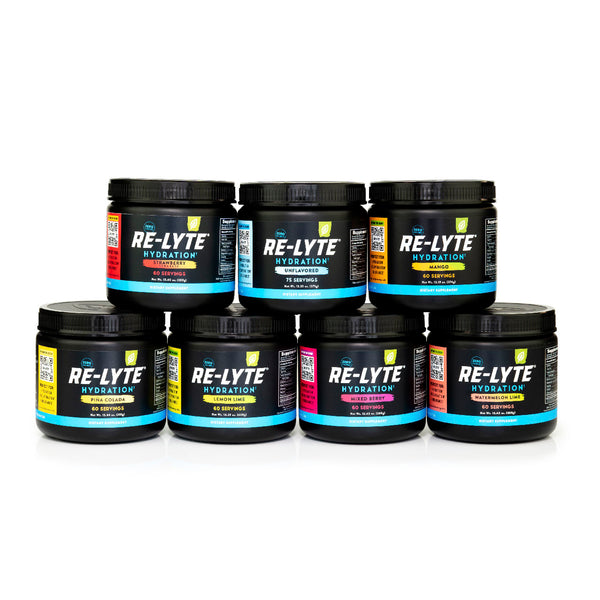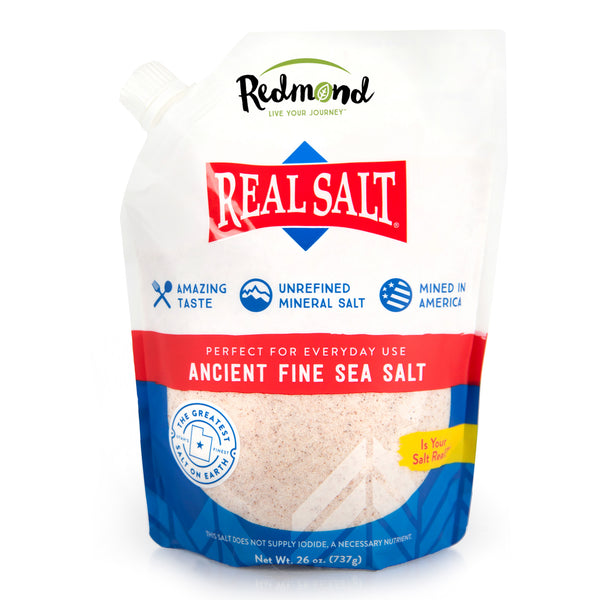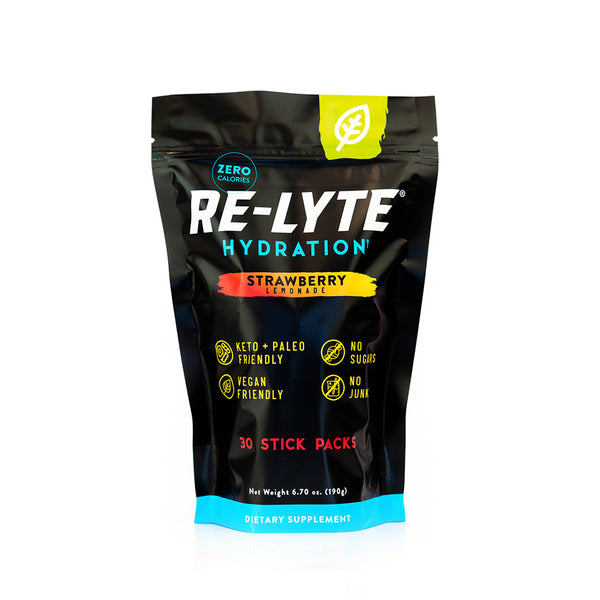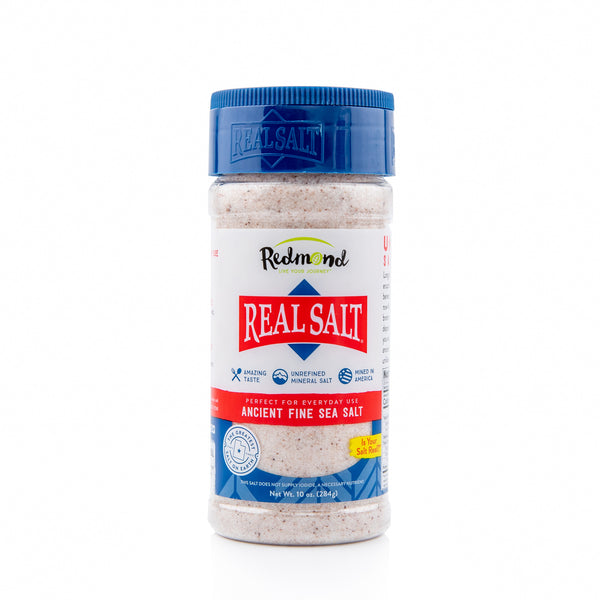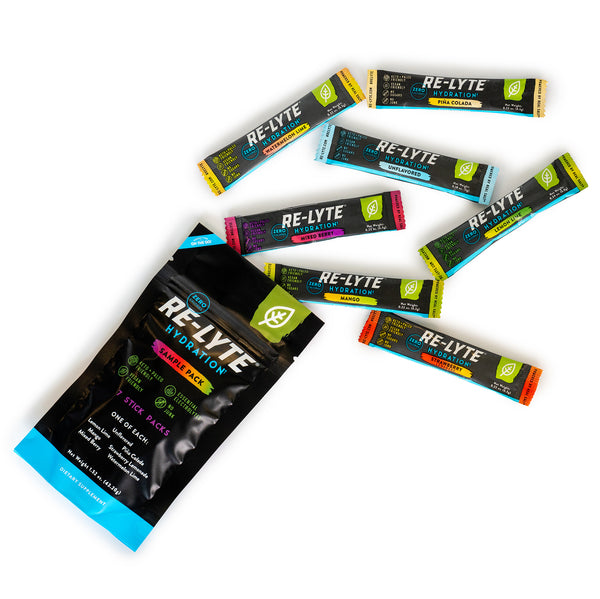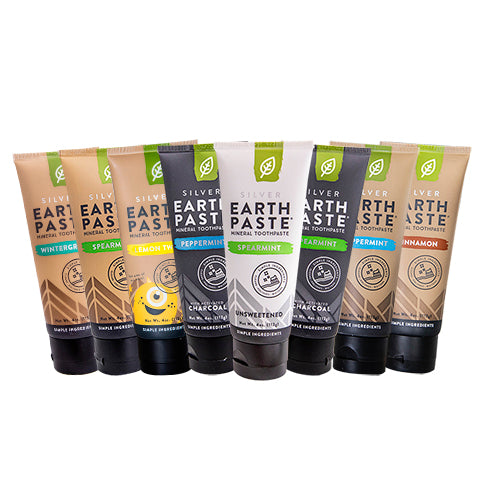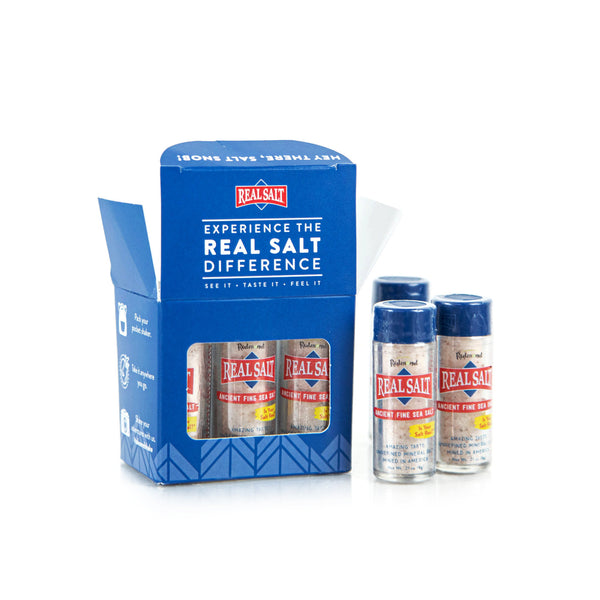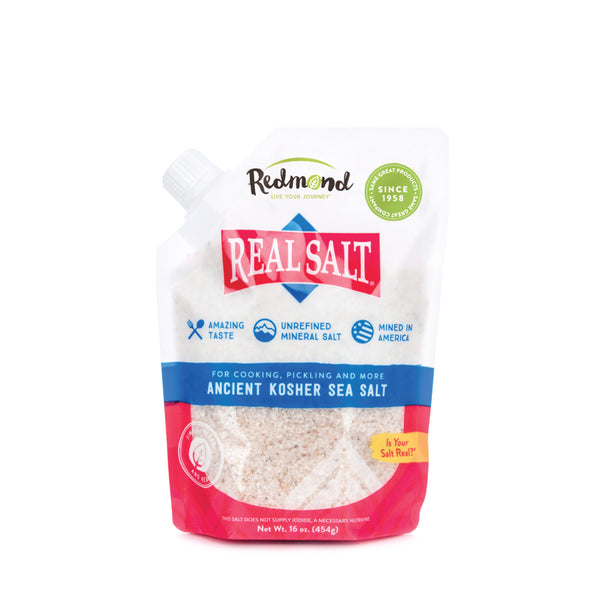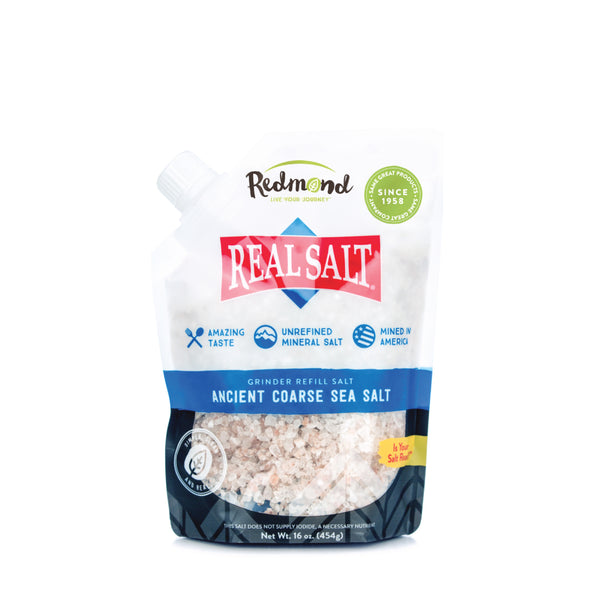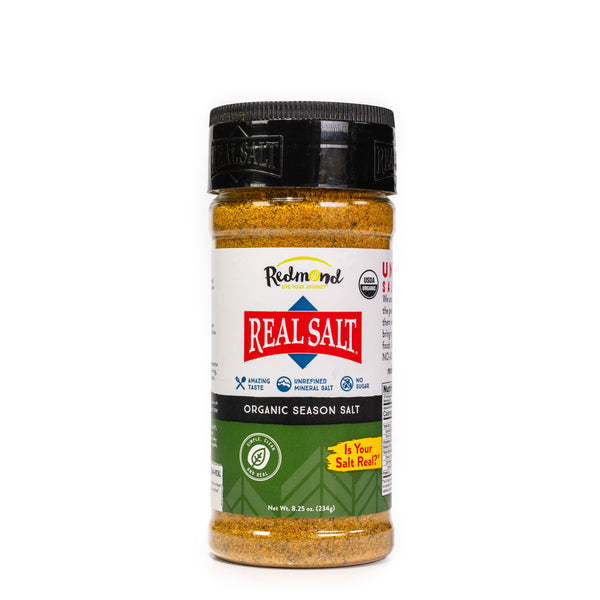Should You Take a Pre-Workout Supplement?
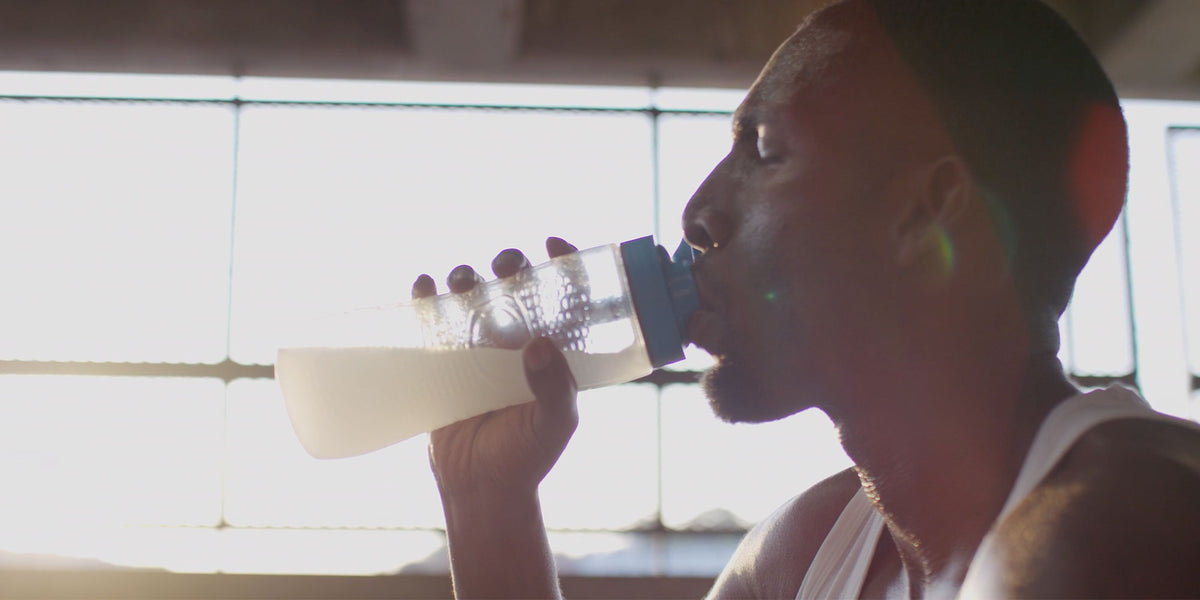
Article at a Glance:
- Pre-workout supplements are multi-ingredient supplements that you take before a workout to give yourself more energy and stamina.
- The average pre-workout supplement contains active ingredients like caffeine, creatine, beta-alanine, amino acids, and nitric oxide agents.
- Many also contain inactive ingredients that aren’t necessarily clean and healthy like artificial sweeteners, artificial colors, anti-caking agents, thickening agents, and sugar.
- If you want a pre-workout kick without additives, consider Re-Lyte Pre-Workout.
- Re-Lyte Pre-Workout contains clean and effective ingredients like caffeine from green tea extract, beta-alanine, vegan BCAAs, taurine, ginkgo root, and maca root.
Pre-workout supplements. You’ve heard the muscle-bound dude at your gym, Bootcamp-obsessed BFF, and favorite fitness influencer mention them. But you still don’t know exactly what they are, why people take them, and if you should too. So here’s a quick primer that starts at the very beginning (a very good place to start according to a pretty trustworthy lady named Julie Andrews).
Pre-workout supplements are multi-ingredient supplements that you take before a workout to give yourself more energy and stamina. They’ve been popular in bodybuilding and CrossFit circles for a while now. But lately, they’re catching the eye of other fitness enthusiasts too (like you, for example).
That’s my elevator speech on pre-workouts. But I have a feeling you’re here for my Oscars acceptance speech on pre-workouts (you know, the really long one. Get the orchestra music ready now just in case I don’t know when to shut up).
What’s In the Average Pre-Workout Supplement?
Most pre-workouts contain a blend of ingredients that are supposed to give you energy and improve your exercise performance. The exact ingredients vary from product to product, but here are a few of the most common:
Caffeine
Pre-workouts typically contain between 150 and 300 mg of caffeine. And you can probably guess why— caffeine gives you the kick you need to tackle every workout with the energy and enthusiasm of Buddy the Elf. But despite what all those novelty mugs (and t-shirts and memes) lead you to believe, not everyone’s into caffeine. And people who don’t want to drink caffeine (or don’t want to drink that much caffeine) might quickly decide that pre-workouts aren’t for them. If you’re one of those people, don’t write off pre-workouts quite yet. There are some that fall on the more moderate end of the caffeine spectrum or don’t contain any caffeine at all.
Creatine
Creatine is an amino acid that gives your muscles energy. In fact, it’s found naturally in your muscles along with a few other places in your body (like your brain). The theory is that if you amplify your body’s creatine supply, your muscles will feel stronger and have more stamina during exercise. You can get more creatine through foods like fish and red meat….or you could take a pre-workout because it’s in most of them. There is one major downside to supplementing with creatine, however. You have to take breaks from it if you want it to keep working. Your body quickly adapts to creatine, and it starts needing bigger doses to produce the same benefits. That’s why a lot of people who use creatine supplements take breaks from them for a few weeks or more.
Beta-alanine
Beta-alanine is a non-essential amino acid that’s been shown to boost exercise performance. How exactly? Well, research shows that your body uses it to create a substance called carnosine, which gets stowed away in your muscles and actually prevents lactic acid from building up while you’re working out. As you may know, lactic acid is the substance that makes your muscles feel sore and tired during a workout, so less of it could mean more muscle stamina.
You’ll find beta-alanine in most pre-workout supplements. But there’s something you should know before you take a pre-workout that contains this amino acid. Beta-alanine has a funny side effect. It’s totally harmless but could freak you out the first time if you didn’t expect it. It can cause something called paresthesia when you take it in doses over 2 grams, which makes your skin feel itchy or tingly. But here’s the good news….any tingling or itching you feel is actually a sign that your beta-alanine is binding to the body and doing its job. And the feeling should start to fade within 30 minutes. So you won’t be stuck feeling funky all day.

Other amino acids
In addition to beta-alanine, you’ll often find other amino acids (or ingredients that contain amino acids) in pre-workout supplements because of their muscle benefits. Taurine is a popular pre-workout ingredient because it contains the amino acid sulfonic acid, which may help improve muscle endurance. You’ll also find branched-chain amino acids (BCAAs) in plenty of pre-workouts. The term branched-chain amino acids refers to three essential amino acids: leucine, isoleucine, and valine. BCAAs are thought to boost muscle growth by increasing the rate at which muscle protein is created, slowing down the breakdown of muscle protein, and reducing muscle damage during exercise. BCAA’s are found more abundantly in animal foods than plant foods, so a lot of the BCAAs in pre-workout supplements are sourced from animals. There are some companies now, though, that get their BCAA’s from fermented vegetables (like us!), so they’re vegan-friendly.
Nitric oxide agents
Nitric oxide (NO) is a pretty helpful thing to have around during exercise. This molecule that occurs naturally in your body causes the muscles in your blood vessels to relax, which allows blood to flow more freely. This can boost blood circulation throughout your body, including to your hardworking muscles, giving them the support they need to perform at their best. That’s why so many pre-workout supplements include ingredients that support nitric oxide production, like arginine, citrulline, or beetroot.
The other stuff...
Unfortunately, pre-workout supplements don’t just contain those beneficial active ingredients mentioned above. They also contain inactive ingredients that make the supplement look and taste “good” (a relative term), mix well, and give the customer a “positive” (once again, a relative term) experience overall. Depending on the brand you buy, these ingredients could be highly artificial and (to use our favorite technical jargon) junk-y. Here are some of the additives you’ll find in popular pre-workouts:
Artificial sweeteners
If you’re the kind of person who cringes every time your sister-in-law orders a Diet Coke because you know artificial sweeteners are bad news, then you’ll want to read the label of pre-workout supplements very carefully before you pick one. Plenty of popular brands contain artificial sweeteners like sucralose and acesulfame potassium, among others.
Artificial colors
Red 40. Blue 1. Yellow 6. They’re all fair game in conventional pre-workout supplements. So if you prefer natural over neon-colored, read those ingredient labels like a health-conscious hawk.
Anti-caking agents
Anti-caking agents are added to lots of processed foods to prevent clumping. You’ll find them in plenty of pre-workout mixes too. Some of the most common ones you’ll see on the back of your pre-workout package are silicon dioxide and calcium silicate.
Thickening agents
Thickening agents are some of the most common additives in foods nowadays, even natural ones. If you’ve ever looked at the back of your oat milk carton, the ingredient label on your gluten-free brownie, or bottle of organic barbecue sauce, you’ll see thickening agents like cellulose gum, xanthan gum, and carrageenan. You’ll find them in pre-workout supplements as well, which is unfortunate since some (like carrageenan) have been linked to inflammation and gut issues.
Sugar
It’s no secret that the sweet stuff isn’t something you should consume in massive quantities every day if you want to stay healthy. In fact, some of us try and steer clear of it altogether. If you’re someone who prefers no sugar, be careful what pre-workout you buy. Look for one that contains a zero-calorie sweetener like stevia, which is a little easier to swallow for most clean fitness folks since it doesn’t spike blood sugar levels.
A Pre-Workout Without the Junk
If you value clean, simple, and real ingredients (and since you found your way over to our blog, we think there’s a good chance— at least 90%?— that you do), you might be thinking that you just aren’t a pre-workout person because of all those additives. But not so fast. There are junk-free pre-workouts. And the best one, in our totally biased opinion, is Re-Lyte Pre-Workout.

We created Re-Lyte Pre-Workout because we couldn’t find a pre-workout that met our standards for simple, clean, and real ingredients. We also noticed that most pre-workouts were geared toward gym rats lifting major iron.... not the everyday fitness lover who needs a little extra motivation making it to the gym or fitting in a workout before the kids wake up. So that’s who we had in mind when we made Re-Lyte Pre-Workout.
It contains clean and effective ingredients that give you the energy boost you need to crush your workouts, whether you’re running, dancing, cycling, or downward dogging. It contains 150 mg of caffeine from green tea extract, which we determined is just enough to give you some oomph without making you super jittery or causing you to crash hard later (like pre-workouts with more caffeine often do).
Re-Lyte Pre-Workout also contains muscle and stamina-supporting beta-alanine, so it may give you those funky tingles we told you about earlier. But not to worry. The tingles are totally normal and a sign the beta-alanine is working. Some people even grow to like the tingly feeling they get from beta-alanine.
We also included vegan branched-chain amino acids (BCAAs) because they support strength, speed, endurance, and muscle recovery. We wanted to make sure Re-Lyte Pre worked for people with a variety of lifestyles, so we sourced our BCAAs from vegetables rather than animals to keep them vegan-friendly. We also included the amino acid taurine to support muscle endurance.
Our pre-workout contains herbs that promote energy and endurance too— ginseng and maca root.
This herbal formulation is not only effective, it’s pretty unique. You won’t find it in just any pre-workout you pick up off the shelf. But Re-Lyte Pre-Workout contains one other ingredient that’s even more unique—our signature Re-Lyte Hydration base.
Our Re-Lyte Hydration base contains the electrolytes you need to stay perfectly hydrated (including a healthy dose of sodium from our Real Salt to replenish what you lose in your sweat). You also get a serving of hydrating coconut water powder, which is full of electrolytes and energizing B vitamins.. And as you probably know, hydration is pretty darn important. It’s hard to make it through a walk around the block let alone a workout if you’re dehydrated (Need help getting a handle on the whole hydration thing? Check out this article.)
Ready for a Pre-Workout Energy Pump?
If you think a pre-workout is for you after all (especially now that you know about Re-Lyte Pre-Workout), then there are a few things you should know to get the most effective pre-workout energy pump.
We suggest taking Re-Lyte Pre-Workout 15-30 minutes before you start your workout, so it has enough time to kick in. If you’re new to pre-workouts we also suggest starting out slow. Start with a half scoop in 8-12 oz of cold water and mix or shake well. If a half scoop doesn’t give you enough of a boost, try a full scoop in 8-12 oz of cold water the next time around. You know what else is cool? Since Re-Lyte Pre-Workout doesn’t contain creatine you can take it daily, no need for breaks.
And there you go! Easy peasy. You’re ready to tackle any and every workout with a clean boost you can feel good about.
Sources:
-
Multi-ingredient pre-workout supplements, safety implications, and performance outcomes: a brief review— Journal of the International Society of Sports Nutrition.
-
Creatine— Mayo Clinic.
-
Does Taking a Pre-workout Actually Work?— Cleveland Clinic.
-
Are Pre-Workout Supplements Good or Bad for You?— Healthline.
-
Why Does Lactic Acid Build Up in Muscles? And Why Does It Cause Soreness?— Scientific American.
-
Beta-Alanine — A Beginner's Guide— Healthline.
-
5 Proven Benefits of BCAAs (Branched-Chain Amino Acids)— Healthline.
-
5 Ways to Increase Nitric Oxide Naturally— Healthline.
